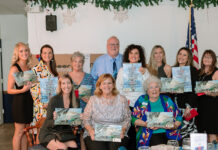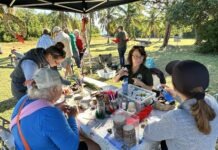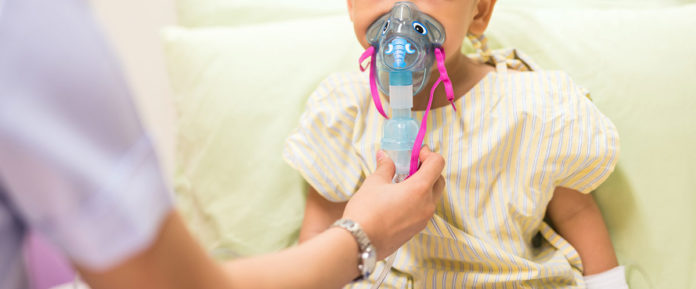“We’re seeing a lot of it. A lot.” Those were the words local pediatrician Dr. Stan Zuba used to describe a recent spike in respiratory syncytial virus, or RSV, among children throughout the country, state and the Florida Keys.
RSV is a contagious virus that can lead to complications and hospitalizations, particularly among children under 2 years old. In the past three to four weeks, hospitals across the country have seen a surge in cases among infants, those born prematurely and kids with congenital heart failure or immune deficiencies.
Older children and adults are also susceptible to RSV, though the dangers are far less than in infants. While RSV causes cold-like symptoms for older children and adults, the virus can cause serious respiratory illness in babies, including lung infections such as bronchiolitis and pneumonia.
“They should see a doctor as soon as possible, especially if they’re premature or have congenital heart disease or anything that makes them at higher risk,” Zuba said.
The Florida Department of Health began tracking RSV in children under the age of 5 in early September, when many regions in the state witnessed a spike in cases. According to DOH, emergency department visits for RSV among children under 5 years of age spiked more compared to previous years. RSV activity in children over 5 years was also above levels observed during the same time in previous years.
Zuba said RSV cases increase during the winter months in the northern part of the country. In Florida, RSV is prevalent year-round and worsens during the winter months. But Zuba said he and other doctors began seeing RSV cases for the last four to six weeks in numbers they haven’t seen in a long time.
“A lot of these viruses, including influenza and RSV, were dormant during a time when COVID was so overwhelming. Now that COVID is waning, these are coming back with vengeance even stronger than they were previously as far as numbers,” Zuba said.
The Florida Keys Healthy Start Coalition and Florida Department of Health in Monroe County said they are working together to ensure families are aware of the recent increase in RSV infections.
According to the Centers for Disease Control and Prevention (CDC), virtually all children get an RSV infection by the time they are 2 years old. RSV may not be severe when it starts, but it can become more serious within a few days. RSV infections can go from mild symptoms to hospitalization in less than a week. Health officials said it’s important to watch babies for worsening symptoms.
If the child is sick and parents notice short, shallow or fast breathing that isn’t normal for them, make an appointment with a doctor right away. Pediatricians will be able to evaluate the potentially dangerous virus and help explain how to best manage the symptoms the baby is experiencing.
One of the best treatments for RSV in older kids and adults is honey, according to Zuba.
“Studies have been done on buckwheat honey, and one teaspoon every 6 hours is better than any over-the-counter cough medicine,” he said.
He also emphasized the importance of washing hands, isolating older kids who are sick and getting to a doctor right away with infants who have symptoms that are consistent with RSV.
“It’s extremely contagious. Even if it’s a mild case, parents can expect that their child will cough anywhere from one to four weeks and have respiratory symptoms for up to a month afterwards,” Zuba said. For more information, contact your local pediatrician, healthcare provider or the Florida Keys Healthy Start Coalition’s office at 305-293-8424. People can also read more about RSV on the American Academy of Pediatrics and Center for Disease Control and Prevention websites.

















